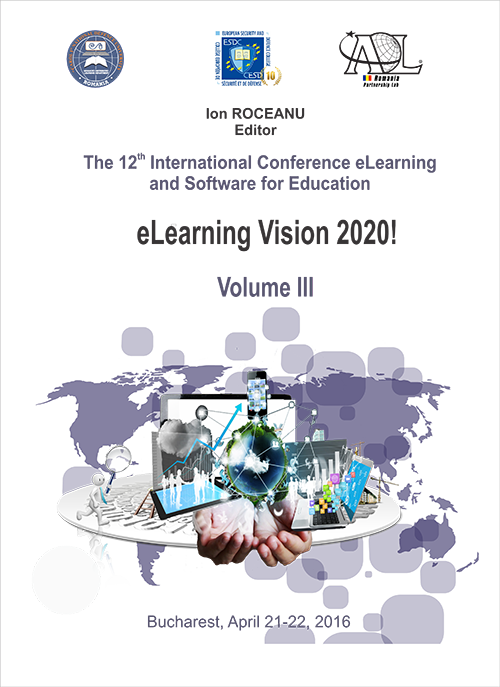NEW TRENDS FOR DEVELOPING BLENDED LEARNING COURSES
NEW TRENDS FOR DEVELOPING BLENDED LEARNING COURSES
Author(s): Mihaela Gabriela Neacşu, Adrian AddăscăliţeiSubject(s): Theory of Communication, ICT Information and Communications Technologies, Sociology of Education
Published by: Carol I National Defence University Publishing House
Keywords: blended learning; new models design; e-pedagogical strategies;
Summary/Abstract: The paper presents the conclusions of a qualitative study regarding the efficiency of new design/development models of pedagogical resources very useful in blended learning. The purpose of the present study is the capitalization of the new blended educational directions used in designing/accomplishing/implementing modern courses using pedagogical methods, recent software products, new perspectives in the process of blended learning/education. The methodology is a qualitative one. The experts participating in the focus group introduce us to new insights with a view to blended learning, emphasizing the advantages of using the blended education in learning environments that allow the adults either on-line or face-to-face communication in order to create and present their own content and evidence of learning through performance-based evaluations. The specific objects of this study are: the analysis of the latest tendencies regarding the design and development of the adults’ blended learning courses; the analysis of the complex role of the teacher in adult blended learning and of the mentorship relation with the beneficiaries of the course; the analysis of the benefits of the blended learning strategies including the evaluation of the acquired competences using blended learning strategies; outcomes of nowadays adult blended learning best practices in Romania. The conclusions of the present study points out the efficiency of blended learning models designed for stimulating the adults’ cognitive processes in order to allow the capitalization of the educational differentiated and personalised content and to ensure a flexible structure of the learning steps, an instantaneous measurement of the students’ progress in acquiring competences and last but not least, an increased involvement of the adults in their own learning process.
Journal: Conference proceedings of »eLearning and Software for Education« (eLSE)
- Issue Year: 12/2016
- Issue No: 03
- Page Range: 607-611
- Page Count: 5
- Language: English

